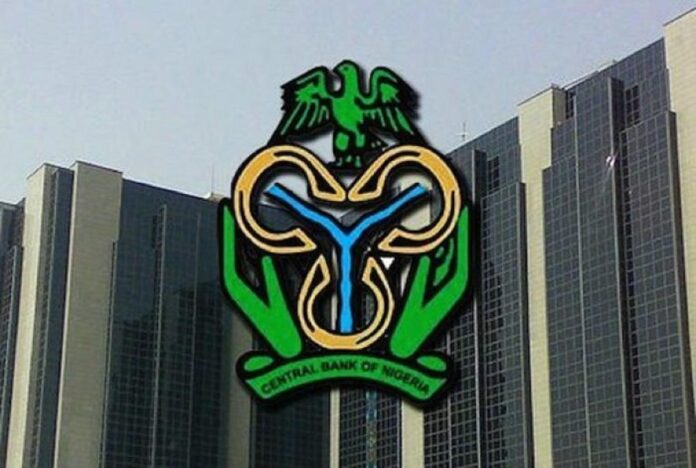By Yahaya Umar
70% windfall tax on Nigerian banks has stirred debate in the financial sector, raising concerns about its impact on profitability and growth.
While some see it as necessary for funding education and health, others warn it could harm the banking industry, already affecting share prices.
The Nigerian banking sector, known for its resilience and profitability, has thrived through high-interest rates, fee income, and cost management.
However, the newly-introduced windfall tax poses a financial burden that could impact these institutions’ profitability dynamics.
Opinions on the windfall tax are divided. Forensic Accountant, Lawrence Metuh supports it, asserting that banks have a responsibility to contribute to societal welfare. He argues the tax could fund infrastructure projects and agricultural inputs like fertilizers or food imports, ultimately helping to lower food prices.
Professor Tayo Bello, a development economist at Adeleke University, believes the 70% windfall tax on Nigerian banks could generate substantial government revenue, particularly when banks report extraordinary profits.
He suggests these funds could be directed toward critical areas like infrastructure, healthcare, and education, reducing inequality and improving citizens’ quality of life by addressing the country’s pressing development needs.
“This tax could encourage banks to focus more on long-term sustainable growth rather than chasing short-term profits. By limiting the extent to which banks can capitalize on market fluctuations, the government could push financial institutions to invest in more stable, productive areas of the economy, such as lending to small and medium enterprises ,SMEs, and supporting innovation”, he noted.
Zakari Mohammed, a financial economist at Auchi Polytechnic, noted that a well-executed windfall tax could boost public trust, as many Nigerians see banks as prioritizing profits over public interest during economic hardships. He noted
“A windfall tax would signal that the government is taking steps to ensure that banks contribute fairly to national development, improving public confidence in both the financial sector and government policy”.
A key concern is the windfall tax’s potential to significantly reduce banks’ net income. Moses Igbrude, President of the Independent Shareholders’ Association of Nigeria, highlights that imposing additional taxes on profits above a threshold limits banks’ retained earnings, possibly reducing shareholder returns.
This decline in profitability may lower stock values, erode investor confidence, and decrease capital inflows into the sector.
The impact will be detrimental. The decision to hold dollars was driven by government policy to devalue the naira, not the banks’ fault.
Punishing banks and shareholders for profiting from this is unjust, especially when banks also face losses from government actions. With dividends already declared, reversing operations is unreasonable. The government should reconsider this approach.
“Moreover, the 70% is too much. The government just wants to grab money from all corners. It’s not right. It’s their policy; if economic players benefit from their policies, so be it. If economic players lose as a result of their policies, then let it be. Or is the government compensating for the losses being incurred as a result of forex crunch?” Igbrude queried.
Dr. Felix Echekoba, a financial economist at Nnamdi Azikiwe University, emphasized that the windfall tax could reduce banks’ ability to reinvest profits.
Retained earnings typically fund expansion, technological upgrades, and product development. Diverting profits to the tax would limit capital for growth, branch expansion, and technology adoption, potentially undermining banks’ competitiveness in the evolving financial landscape.
“The long-term growth prospects of Nigerian banks may also be affected by the windfall tax. As banks face increased taxation, they may become more risk-averse, particularly in their lending practices.
Banks might reduce their exposure to certain sectors or businesses deemed high-risk, which could stifle credit growth and limit access to finance for businesses, particularly small and medium-sized enterprises ,SMEs.
Given that SMEs are a vital component of Nigeria’s economy, providing employment and driving economic activity, any reduction in credit availability could have broader economic implications”, Echekoba said.
He added that the 70% windfall tax could prompt banks to adjust pricing strategies, potentially raising fees or interest rates on loans and services to offset losses.
“This would increase the cost of borrowing for consumers and businesses, potentially slowing down economic growth and reducing the overall demand for banking services. Higher costs could also lead to an increase in Non-Performing Loans ,NPLs, as borrowers struggle to meet their obligations, further straining the financial health of banks”, he stated.
Dr. Muda Yusuf, CEO of the Center for the Promotion of Private Enterprise, argued that the 70% windfall tax places significant pressure on banks’ resources, especially amid recapitalization struggles.
Even tier 1 banks face difficulties mobilizing funds. While the CBN initially proposed a 50% tax, the National Assembly raised it to 70%, which Dr. Yusuf deems excessive. He contends that the 50% proposal would have been more manageable and the 70% tax is unfair.
“It may affect the confidence of investors in that sector. It’s even beginning to affect their shares. It’s weakening because the outlook for them is bleak in the light of what is happening. There is also a moral angle to it. Supposing they had lost money as a result of the forex issue, as there are companies that lost money; is anybody going to compensate them? That is a strong moral argument; because when you are in business you can gain money and lose money as well. That is the reward of entrepreneurship. You are taking a risk”, Yusuf stated.
Dr. Emeka Okengwu, Chief Executive at AntHill Concepts Limited, noted that taxation is a double-edged sword, cautioning that excessive taxes can drive businesses out.
“The more you increase tax burden on businesses, the more they transfer it to the consumer. So it doesn’t fit well. A lot of banks are under the weather, with rumors that some of them will be merging, while others will face some hostile takeover.
I don’t think this is the right time for us to be adding more burden on those sectors that can get us past this headwind we are facing now because ultimately it will impact how the banks will be able to support their customers, especially those that are in the real sector”, he said.
He added that although the windfall tax targets extraordinary profits of Nigerian banks, it poses significant risks to their profitability and growth.
“The tax could reduce net income, limit reinvestment opportunities, and lead to more conservative lending practices, all of which could hamper the long-term growth of the banking industry.
Also, the potential for higher costs passed on to consumers and businesses could further slow economic growth. As the government seeks to balance fiscal needs with the health of the banking sector, careful consideration must be given to the potential unintended consequences of the windfall tax on one of Nigeria’s most vital industries”, he said.











